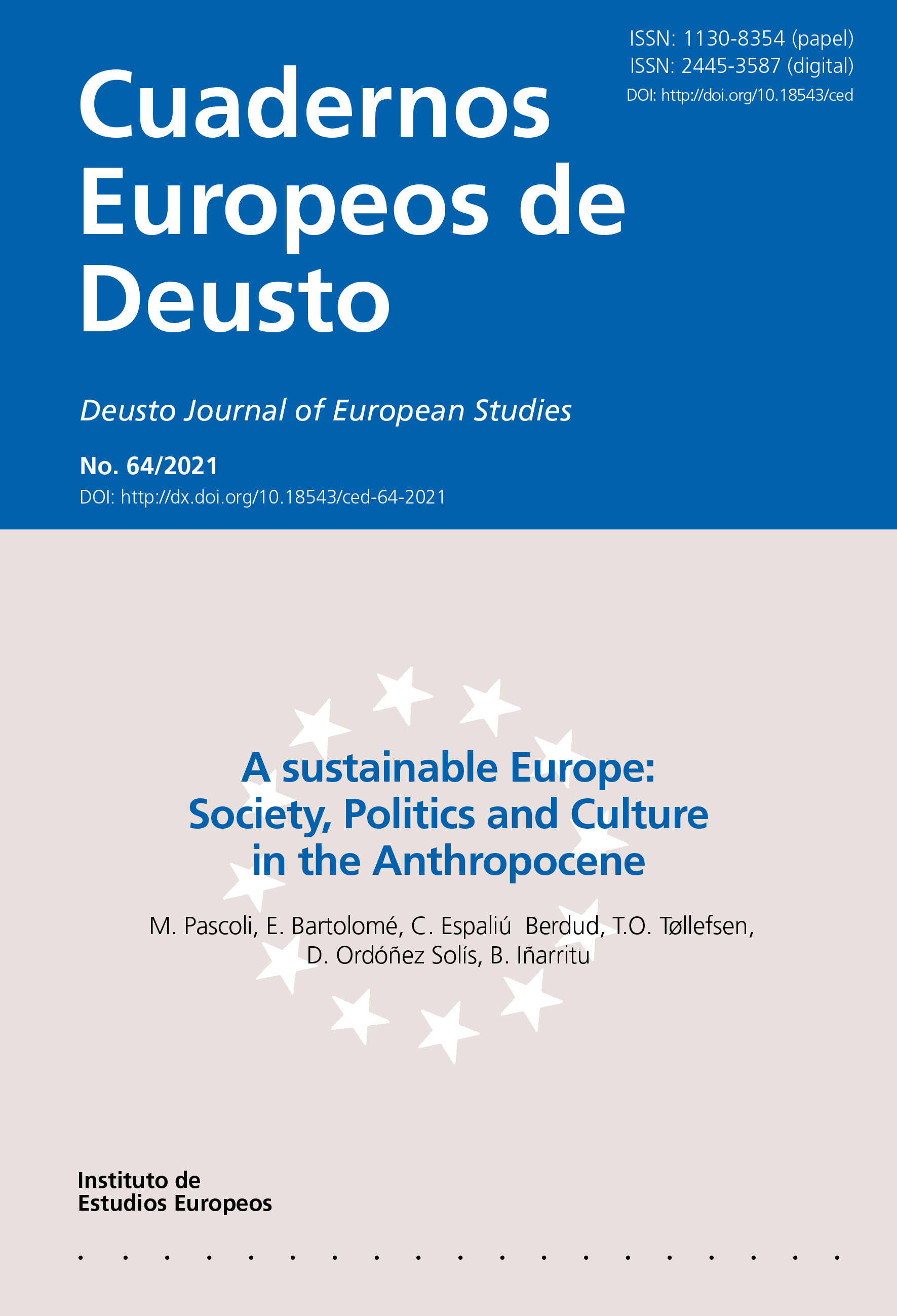The abandonment of the Spitzenkandidaten System: (Un)sustainable democracy in the EU?
Abstract
In the process of the parliamentarisation of the EU, the Treaty of Lisbon took a further step forward by introducing into the founding treaties - Article 17.7 TEU- the need to take into account the elections to the European Parliament for the appointment of the President of the Commission. Nevertheless, the European Parliament has been trying to impose its interpretation of Article 17.7 TEU, which has been coined into the Spitzenkandidaten doctrine, according to which the head of the party winning the elections should be elected as Commission President. The Parliament succeeded in imposing its vision with the occasion of the appointment of Juncker in 2014. Nevertheless, by not proposing Manfred Weber, the leader of the most voted party in the 2019 elections, as President, the European Council has prevented the consolidation of the 2014 precedent. Article 17.7 of the TEU also expresses the desire to bring the European elections closer to the citizens, so that their opinion is taken into account when the President of the Commission is elected. And it seems that both the results of participation in 2019 and the perception of the voters show that the Spitzenkandidaten system has been useful for that purpose. In any event, I consider that the fact that citizens voted in the 2019 elections in the belief that their votes would be decisive in appointing the President of the Commission and, in the end, it was not elected an Spitzenkandidaten as head of the Commission, is a very serious lack of consideration for citizens.
Received: 03 February 2021
Accepted: 25 March 2021
Downloads
The author grants to the Publisher the distribution, public communication, and reproduction rights of her/his work subject of publication in Deusto Journal of European Studies (DJES), whichever the media may be, including the permission to include it in the databases where this Journal is indexed and in the institutional repository of the Universidad de Deusto.
Upon its publication, the content of any Issue of Deusto Journal of European Studies (DJES) can be accessed, read, downloaded, copies, and distributed freely for non-commercial purposes and in accordance with any applicable copyright legislation.
The content of Deusto Journal of European Studies (DJES) can be subsequently published in other media or journals, as long as the author clearly indicates in the first footnote that the work was published in Deusto Journal of European Studies (DJES) for the first time, indicating the Issue number, year, pages, and DOI (if applicable). Any other use of its content in any medium or format, now known or developed in the future, requires prior written permission of the copyright holder.
The content of the work published in Deusto Journal of European Studies (DJES) is each author's sole responsibility. The authors assume the responsibility of obtaining all the necessary licenses for the reproduction in their manuscripts of any text, material or illustration coming from another author, institution or publication. The liabilities that may arise from complaints for publishing plagiarised articles are the sole responsibility of the author.


3.jpg)
2.jpg)
2.jpg)
2.jpg)
2.jpg)
2.jpg)







